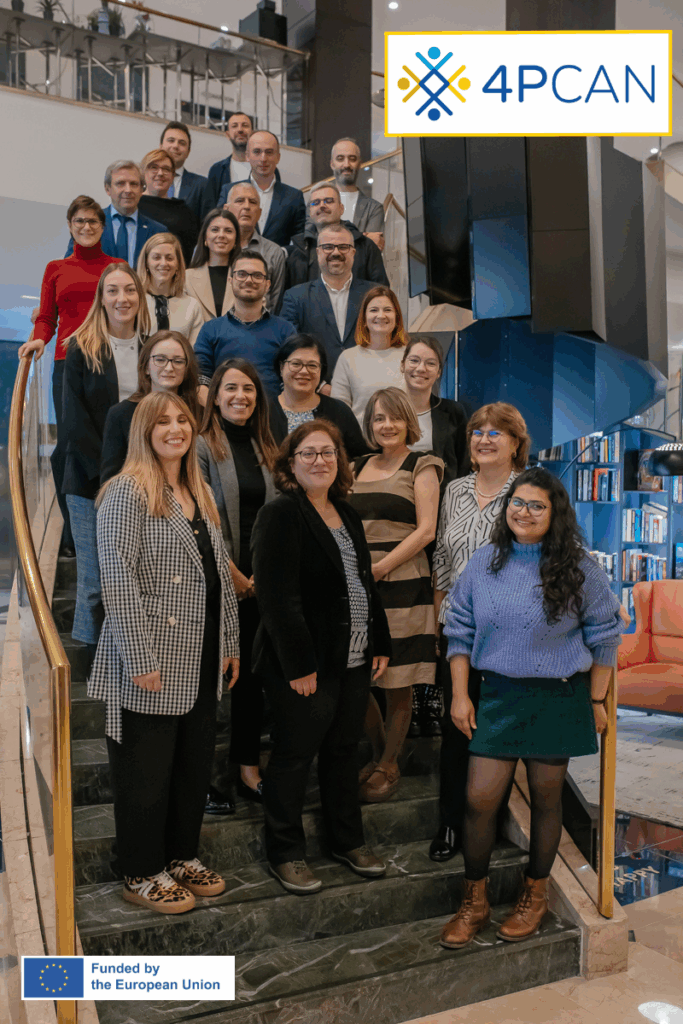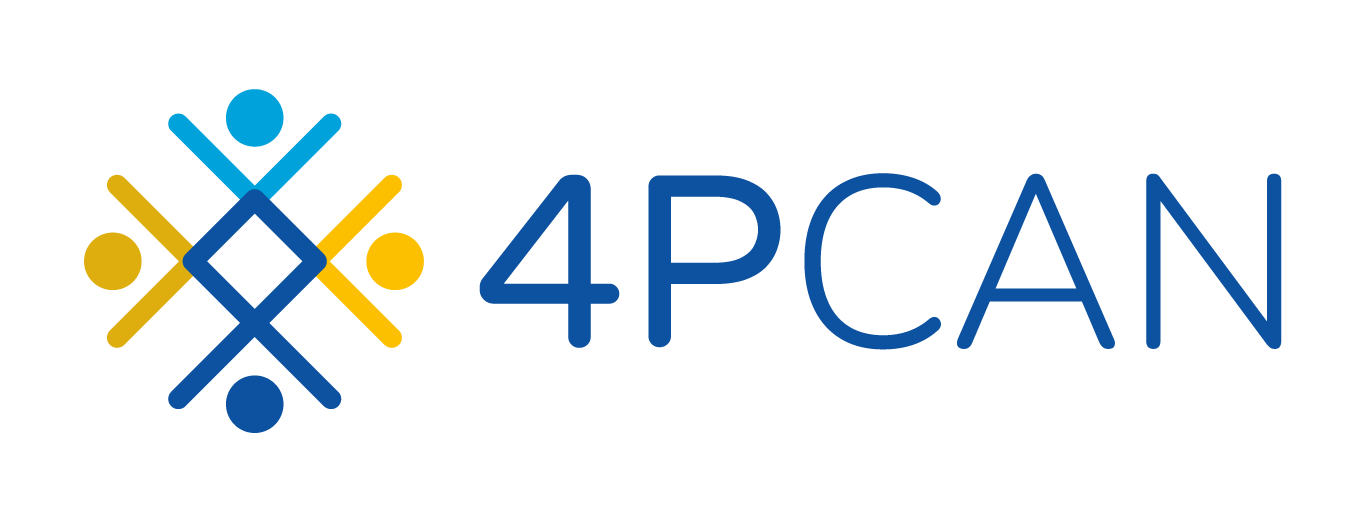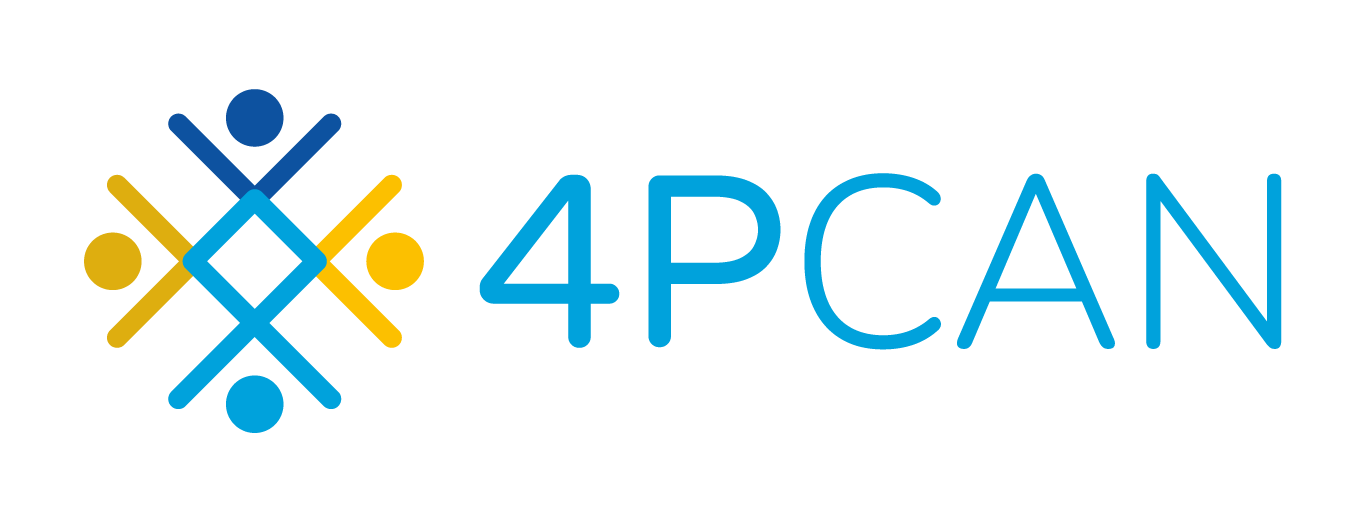PRESS RELEASE
4P-CAN 4th Consortium Meeting, Chișinău, Moldova – 31 March / 2 April 2025
The 4P-CAN consortium successfully concluded a meeting in Chișinău, hosted by the General Directorate of Medical and Social Assistance from the Municipality of Chișinău. The discussions brought together all partners, in-person and online, to assess progress and strategise future actions aimed at improving cancer prevention across Central and Eastern Europe.
On 31 March, consortium members shared the achievements and progress in their respective work. 4P-CAN Coordinator Marius Geantă, from the Centre for Innovation in Medicine, emphasised the importance of building synergies in the coming years. He highlighted collaborations with the Prevention and Early Detection Cluster – Implementation Research, EU Cancer Mission initiatives, and ECHoS, underscoring the need for a united approach to tackling cancer prevention challenges.
On 1 April, discussions centered on policy recommendations and effective communication strategies.
A hands-on workshop, facilitated by Bettina Ryll from ECHoS, provided participants with insights into impact pathway monitoring—a critical tool for ensuring that cancer prevention efforts translate into meaningful and measurable outcomes for communities.
On 2 April, 4P-CAN consortium members were invited to a roundtable organised at the Municipality of Chișinău to discuss opportunities for the Republic of Moldova to collaborate and align with European initiatives, and potential directions for action at the local and national levels.
The first roundtable discussion was held by:
-
- Marius Geantă – President, Centre for Innovation in Medicine, member of the ECHoS Project, Coordinator of 4P-CAN
-
- Bettina Ryll – Founder, Melanoma Patient Network Europe; Former Member of the EU Cancer Mission Board; Task Lead at the, ECHoS Project
-
- Ivaylo Petrov – the Bulgarian Joint Cancer Network (BJCN); Partner in 4P-CAN and ECHoS Projects
-
- Marian-Gabriel Hâncean – Researcher at the Department of Sociology at the University of Bucharest and Director at the Research Center for Organisations and Complex Networks
All four presented the background of their work, ideas and good practices to representatives from the Moldovan society, from the public and private sectors, civil society, academia and national healthcare system.
Another panel tackled the topic of health data sharing, with a presentation of a pilot project from the Valentin Ignatenco Children’s Hospital, with the objective to create access to patients’ data to be used in research.
Discussions between the Moldovan representatives and 4P-CAN partners provided a set of key ideas for alignment with European initiatives and outlined a roadmap for future collaboration. This consortium meeting reinforced the shared commitment of the 4P-CAN to reduce the burden of cancer through collaborative, data-driven, and community-focused approaches. As the consortium continues to expand its reach and deepen regional cooperation, the insights and connections formed in Moldova lay the groundwork for impactful actions aligned with European cancer prevention goals. The event not only showcased progress, but also catalysed new opportunities for integration, innovation, and joint leadership in advancing primary cancer prevention across Central and Eastern Europe.
“Coordinating the 4P-CAN project is not only a responsibility, but also a journey of discovery and continuous learning. This becomes especially meaningful when we focus on regions that have historically received less attention from European prevention initiatives, such as Eastern Europe. The consortium meeting in Chișinău provided us with valuable insights into the challenges of primary cancer prevention in the region, while also highlighting local examples of good practice. One such example is the HPV vaccination rate in the capital city of Chișinău, which stands at 48% - significantly higher than in neighboring countries like Romania or Bulgaria. This is of great value for the implementation of 4P-CAN activities, particularly in relation to our goal of reducing East-West inequalities. The relevance of this example lies in the shared cultural and historical factors across Eastern European countries, which continue to shape public health status and influence the effectiveness of prevention strategies. As a consortium, this experience motivates us to deepen our collaboration with local actors and to continue to develop innovative cancer prevention models that are grounded in regional and local realities over the next two years of the project”
Marius Gentă, Coordinator of 4P-CAN


